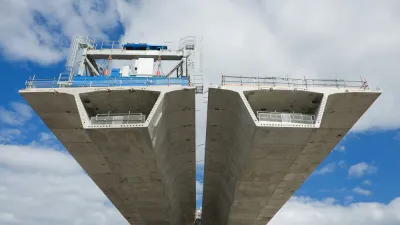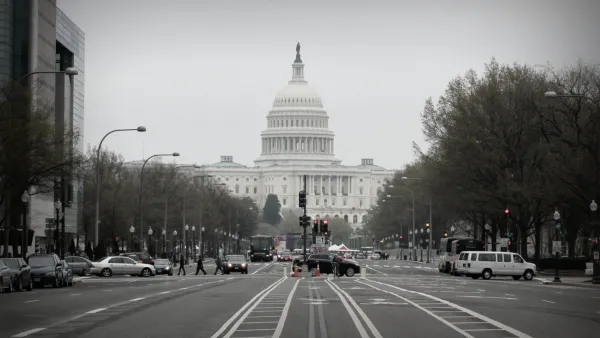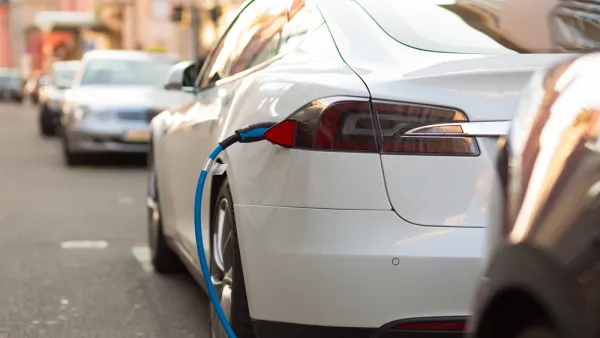A $287 billion, five-year transportation reauthorization made its way out of its first Senate committee this week.

"The first transportation bill to acknowledge climate change won unanimous support Tuesday from the Senate Committee on Environment and Public Works," report Ashley Halsey III and John Wagner for The Washington Post.
The notion that the bill would substantively address the causes and symptoms of climate change contradicts early criticisms of the bill, accused of dumping new levels of spending on highway expansions without considering climate change.
Senator John Barrasso (R-Wyo.) is quoted in the article saying: "Ninety percent of that money will go directly to our roads and bridges," which suggests a focus on fixing the nation's transportation infrastructure before building more.
As reported in another article by Elvina Nawaguna for Roll Call, the bill would also expedite permitting for the nation's large infrastructure projects, a promise made by President Trump in the 2018 State of the Union address, which suggests policy change intended to expand the capacity of the country's car and truck transportation infrastructure.
That kind of spending to expand the status quo of transportation would only exacerbate the causes of climate change.
As for the promised action to address climate change, Senator Thomas R. Carper (D-Del.) is also quoted in the Post article mentioning the reauthorization bill's proposed spending on climate change adaptation. "He said the legislation would channel $10 billion to reducing emissions and increasing the resilience of infrastructure so that it will better stand up to the impact of climate change," according to the article.
According to Nawaguna, climate change mitigation provided one of few sore spots during the committee's markup of the bill, as Senator Joni Ernst (R-Iowa) was one of two lawmakers to express dissatisfaction with $1 billion allocated for "the construction of charging and refilling stations for electric, natural gas and hydrogen-powered vehicles," instead of biofuels.
Now the bill heads to the Senate Finance Committee, where discussions about the federal gas tax, and whether it should be increased for the first time since 1993, are more likely to occur.
FULL STORY: Senate committee acknowledges climate change in passing $287 billion transportation bill

Analysis: Cybertruck Fatality Rate Far Exceeds That of Ford Pinto
The Tesla Cybertruck was recalled seven times last year.

National Parks Layoffs Will Cause Communities to Lose Billions
Thousands of essential park workers were laid off this week, just before the busy spring break season.

Retro-silient?: America’s First “Eco-burb,” The Woodlands Turns 50
A master-planned community north of Houston offers lessons on green infrastructure and resilient design, but falls short of its founder’s lofty affordability and walkability goals.

Test News Post 1
This is a summary

Analysis: Cybertruck Fatality Rate Far Exceeds That of Ford Pinto
The Tesla Cybertruck was recalled seven times last year.

Test News Headline 46
Test for the image on the front page.
Urban Design for Planners 1: Software Tools
This six-course series explores essential urban design concepts using open source software and equips planners with the tools they need to participate fully in the urban design process.
Planning for Universal Design
Learn the tools for implementing Universal Design in planning regulations.
EMC Planning Group, Inc.
Planetizen
Planetizen
Mpact (formerly Rail~Volution)
Great Falls Development Authority, Inc.
HUDs Office of Policy Development and Research
NYU Wagner Graduate School of Public Service




























